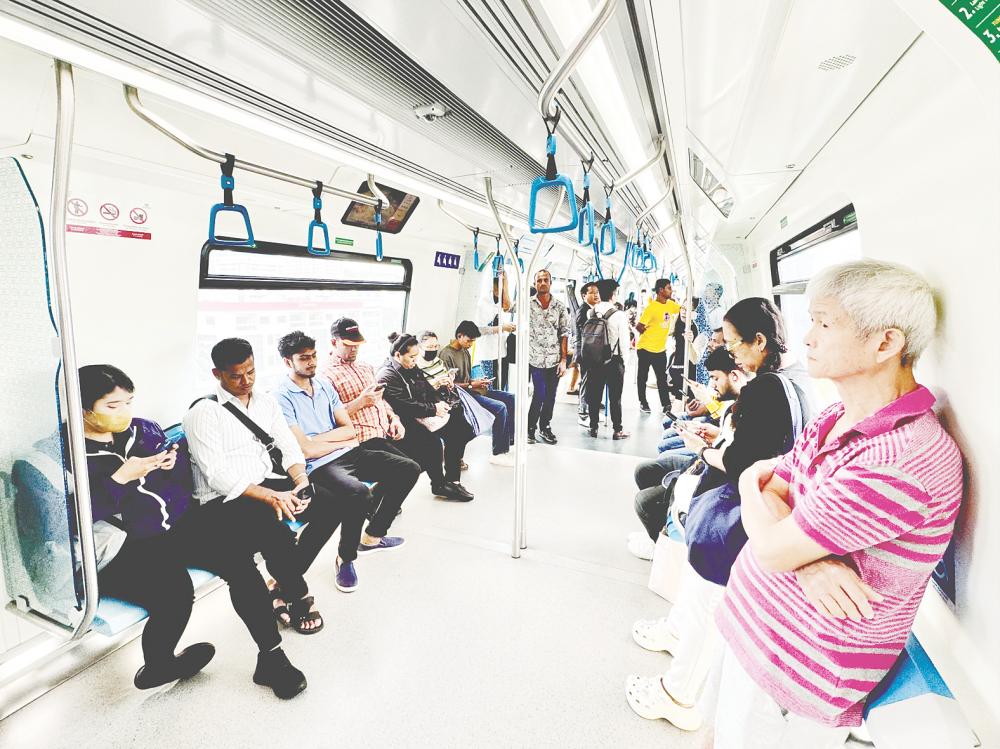PETALING JAYA: Commuters refusing to give up seats for the elderly, pregnant women and persons with disabilities on public transport could be linked in part to its unreliable connectivity, overcrowding and poor maintenance, said MY Mobility Vision founder and CEO Wan Md Hazlin Agyl Wan Hassan.
As a leader of an organisation dedicated to transforming Malaysia’s transport landscape, he said: “Passengers who are frustrated over poor services will be less mindful of social etiquette. While stricter penalties for antisocial behaviour on public transport could deter inconsiderate actions, they are not the ultimate solution.”
He said educational and cultural gaps compound the issue, stressing that without consistent behavioural modelling or integrated educational programmes emphasising shared mobility ethics, the message of civic responsibility would fail to permeate society.
“Malaysia has undertaken several initiatives aimed at boosting civic awareness on public transport. For instance, the National Transport Policy 2019–2030 includes comprehensive programmes to promote public education on etiquette and low-carbon transport.
“However, significant challenges remain, particularly in the realm of enforcement and sustained behavioural change. These have not yet achieved the deep, cultural shift required to ensure consistently respectful behaviour across the board.”
He said while evidence suggests that visible and well-enforced fines could modify commuter behaviour, excessive penalties risk fostering resentment rather than genuine civic awareness.
“Issues such as queue-jumping, loud phone conversations and misuse of emergency buttons reveal that the problem extends to everyday commuter behaviour and illustrate a pervasive disregard for shared responsibilities.
“These issues are worsened by infrastructural limitations and inconsistent enforcement that foster an environment in which social responsibility is undervalued and public trust in the transport system is eroded.”
Wan Md Hazlin said without concurrent improvements in service quality and infrastructural enhancements, harsher penalties might only reinforce negative perceptions about the public transport system.
“A balanced approach that combines fair enforcement with penalties proportionate to an offence and initiatives to improve overall service quality and public education is more likely to result in sustained civic awareness and compliance.”
He urged public transport operators and local authorities to consider launching targeted, creative awareness campaigns that leverage social media and popular culture to highlight the importance of courteous behaviour.
He said practical measures, including integrating technology such as RFID-based alerts to notify passengers when a priority seat is needed, could help remind users of their responsibilities in real time.
“Across the globe, several innovative strategies have fostered civic responsibility in public transport. In Bogota, Colombia the TransMilenio system integrates extensive staff training, community engagement and collaborative campaigns with NGOs to create a more inclusive environment.”
Universiti Teknologi Malaysia Research Institute for Sustainable Environment director Prof Dr Muhammad Zaly Shah said the conduct of Malaysians on public transport is not due to systemic failure but rather their inconsiderate actions.
“Education and awareness campaigns are the most effective ways to curb uncivilised commuter behaviour, with users playing an active role in discouraging such behaviour.
“This means setting a good example, speaking up when they witness inconsiderate actions and not turning a blind eye when it happens.”
He said more creative and strategically placed signage is needed to reinforce the importance of civic awareness among public transport users, adding that periodic announcements on trains could serve as reminders to discourage inconsiderate behaviour.
“It may be just a seat on the train but this is a symptom of a larger societal problem in which caring for the underprivileged is absent.”









